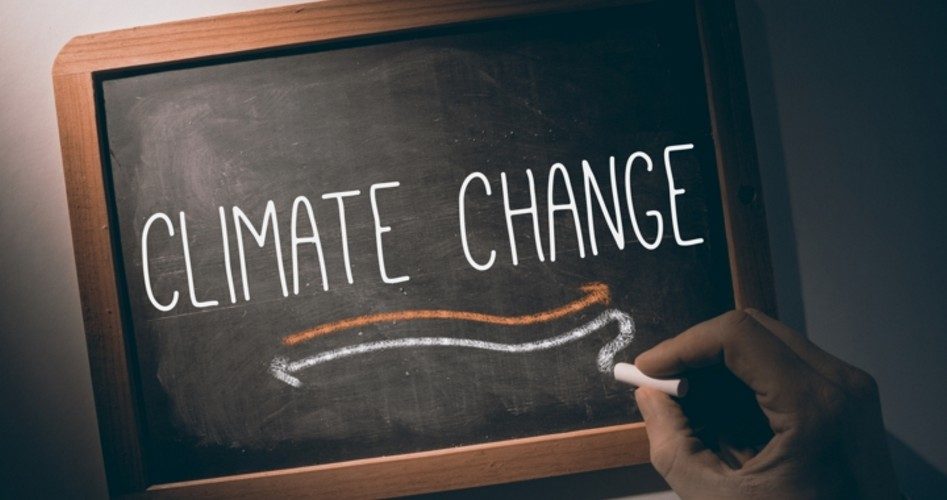
“I believe climate change is real,” Hillary Clinton asserted in her acceptance speech at this year’s Democratic National Convention, while Republican nominee Donald Trump did not mention the issue during his own speech at the Republican National Convention, although he has dismissed human-caused climate change as largely “a hoax.”
Senator John McCain, the 2008 Republican nominee, mostly accepted the claims of the alarmists. But now, after several years of outlandish doomsday scenarios pushed by those who argue, as does Clinton, that climate change is “real,” could this issue hurt her chances in November?
In the past several years, the gloomy predictions made by global warming alarmists have signally failed to come to pass. In 2006, Al Gore claimed that we were reaching the point of “no return” unless the world dramatically reduced greenhouse gases. In the movie based on Gore’s book, An Inconvenient Truth, James Hansen bluntly declared, “We have at most ten years — not ten years to decide upon action, but ten years to alter fundamentally the trajectory of global greenhouse emissions.”
Rajendra Pachauri, chief of a United Nations climate panel, insisted that if action were not taken by 2012, it would be “too late” to save the planet. In one of the most ridiculous of the alarmists’ predictions, then-British Prime Minister Gordon Brown pronounced that the world only had 50 days to save the planet from global warming. That was in 2009.
The “inconvenient truth” for those who continue to push this belief, and for the austerity demanded by the theory’s advocates, is that it may have become a political albatross. Trump certainly is not afraid to directly challenge the entire global climate-change thesis, arguing that Clinton’s proposals are an “extreme, reckless anti-energy agenda,” adopted “to appease radical donors [who] will destroy millions of jobs and force millions more into abject poverty.”
In the 1960s and the 1970s, there was an 86-percent scientific consensus that the planet was cooling — dangerously so, leading perhaps to another Ice Age. During those years, 220 out of 264 scientific papers that were published backed the cooling thesis. Yet, global warming alarmists are now claiming that it is some sort of urban myth that scientists thought back then that there was a real possibility of another Ice Age. Interestingly, however, there was even talk at the time of setting off nuclear bombs at the northern polar ice caps to break up some of the ice!
Those who advocate increased governmental regulation of the economy to stop “global warming” have even ceased using that term, replacing it with “global climate change.” Thus, all events — whether warming or cooling, droughts, torrential downpours, or hurricanes, are said to “prove” their theory that human industrial activity is causing a radical change in the planet’s climate.
And naturally, such a theory calls for more global controls of the economy, and in fact, more government domination over our personal lives as well. But, like the little boy who cried wolf, wild predictions of rising seas and the like that have not come to pass, and the pushing of doomsday projections, may now be leading the general public to reject such claims. Clinton has expressed pride in the Obama administration having signed the Paris climate accord, which commits America to slow the rise of greenhouse gases blamed for warming the climate. Fortunately, the U.S. Senate has ignored the deal, which Obama insists on not calling a treaty.
Polling indicates that the public is not buying the apocalyptic global-warming scenario, which may mean Hillary Clinton will push the theory at her own political peril.



